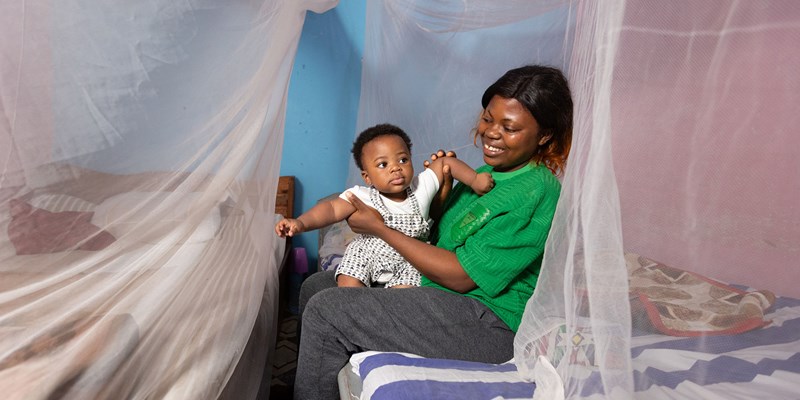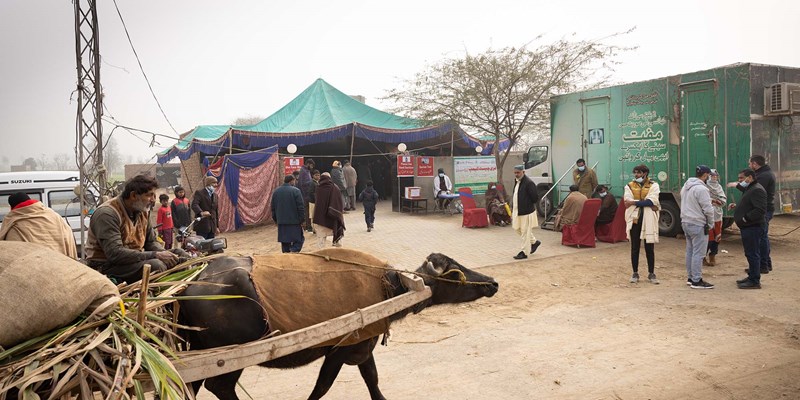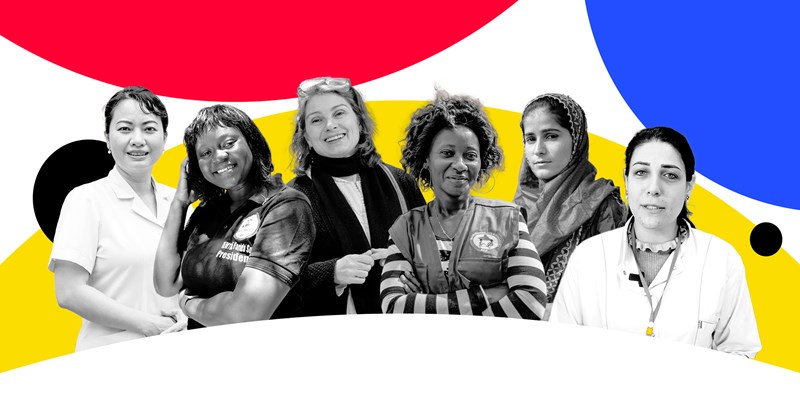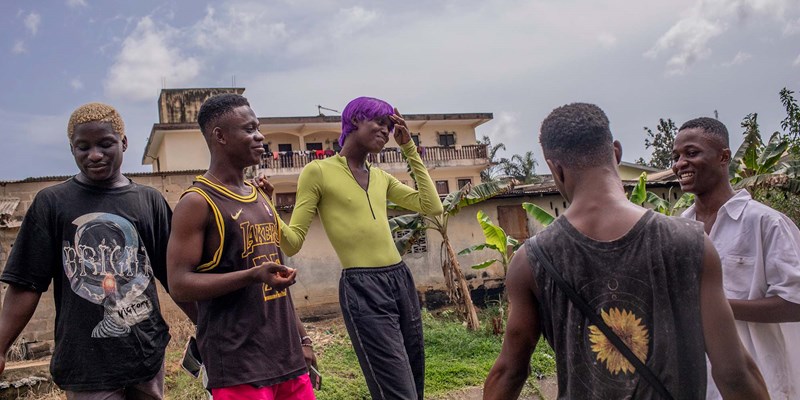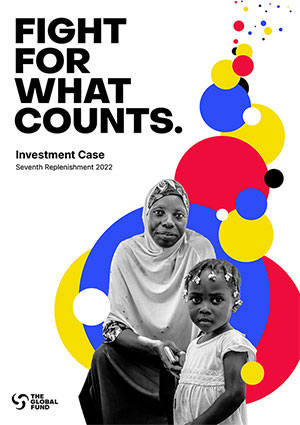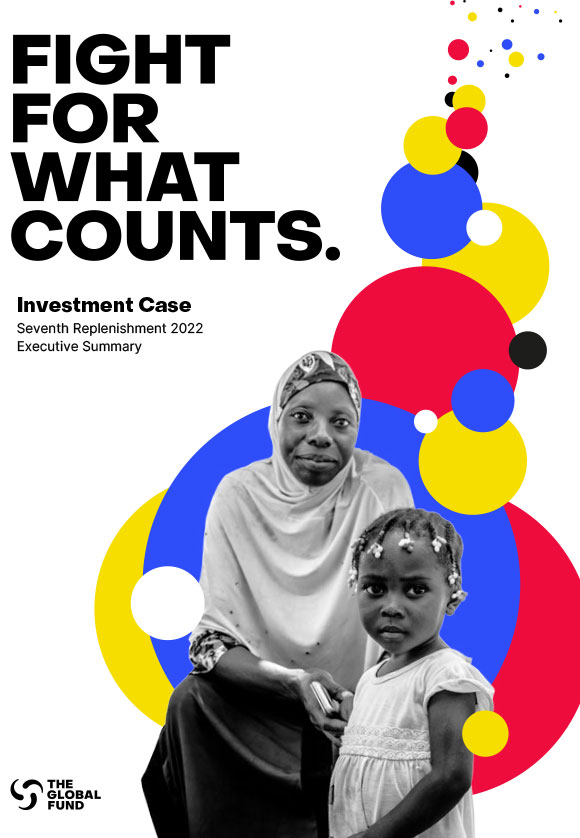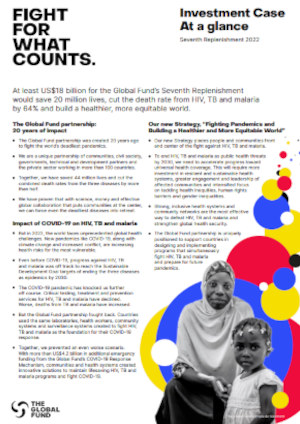$225 million partnership to bring effective malaria drugs to all who need them
17 April 2009
Oslo – An international partnership was launched Friday to put affordable life-saving malaria drugs within reach of millions of people, especially children, in sub-Saharan Africa and Asia.
“The age when the world had effective drugs against infectious diseases but let millions die each year because they couldn’t afford them is over,” says Foreign Minister Jonas Gahr Støre of Norway, "Thanks to new commitments, collaboration, and finance build up over the last decade, we are making these deaths history. The results will go beyond saving lives: malaria is costing developing countries billions of dollars each year in lost economic output. By controlling malaria, we can improve school attendance and productivity, open new areas to business and tourism and reduce health costs.”
Malaria is a potentially deadly disease that is transmitted through mosquito bites and kills more than 2,000 children every day. Children make up nearly 90 percent of the nearly 1 million people who die from malaria every year, mainly in sub-Saharan Africa and parts of Asia.
The new initiative will reduce the price of effective malaria drugs so they can drive older, ineffective drugs out of the market. The Global Fund to Fight AIDS, Tuberculosis and Malaria will manage the new initiative.
“This partnership is an important part of the global effort to control malaria worldwide,” says Dr Michel Kazatchkine, Executive Director of the Global Fund. “There is no reason any child should die of malaria anymore. We have insecticide-impregnated bed nets to protect families from mosquitoes and effective drugs to treat those who do fall ill. Now we only need to ensure that all who need these things get them. This is a very wise investment in global health – and therefore in global development.”
During the last few years new, effective malaria medicines have been made available for free in public health clinics. When combined with national campaigns to provide mosquito bed-nets for every family living in areas with malaria this has led to a dramatic fall in malaria deaths in several countries in Africa. The combination of bed nets to prevent malaria transmission and drugs that cure malaria quickly has reduced malaria deaths by between 50 percent and 90 percent in areas where both are widely available.
However, because most people do not have immediate access to public health facilities they buy their drugs at local market stalls and private pharmacies. The new drugs, known as “artemisinin combination therapies” or ACTs, are currently 10 - 40 times more expensive when sold over the counter than the old drugs which have lost their effectiveness because the malaria parasite has developed resistance to them. As a result of the high cost, many still buy these cheaper less effective drugs and currently, only one in every five patients treated for malaria has access to ACTs.
The initiative, known as the Affordable Medicines Facility for malaria, was developed through Roll-Back Malaria – a broad partnership of public and private institutions, such as the World Bank, UNICEF, the Dutch Government, the Global Fund, the Bill and Melinda Gates Foundation and the Clinton Foundation.
“The Affordable Medicines Facility for malaria is a breakthrough in global health,” says Robert B. Zoellick, President of the World Bank Group. “It will help to treat the millions of people who suffer from malaria illness and death every year and prolong the effectiveness of new anti-malarial medicines. It is a striking example of partnerships that really work. We are pleased the World Bank Group could help create and support the new Facility, and we are appreciative that the Global Fund will now lead its implementation.”
The initial costs of US$225-233 million for medicines in the first two years will be shared by UNITAID, (an international mechanism to finance quality-assured medicines and diagnostics against HIV/AIDS, malaria and tuberculosis, created by France and supported by Norway and 26 other nations), and the United Kingdom government. Several other organizations and governments have indicated willingness to contribute additional funding to the initiative.
“We are proud that the Netherlands was a key partner during the early stages of the Affordable Medicines Facility for malaria’s design and development, and we are impressed with the outcomes of this collaborative process,” says Netherlands Minister for Development Cooperation Bert Koenders. “We warmly welcome the contributions already pledged by UNITAID and the United Kingdom, and are pleased to announce that the Netherlands is also considering a financial contribution to the AMFm.”
It will initially be offered to 11 countries (Benin, Cambodia, Ghana, Kenya, Madagascar, Niger, Nigeria, Rwanda, Senegal, Tanzania and Uganda). After two years, providing it is successful, a decision will be taken on whether to expand it globally.
”What we are doing is using market dynamics to save more lives,” says Dr Philippe Douste-Blazy, Chairman of the board of UNITAID. ”Through the provision of predictable funding, manufacturers will see an incentive to bring prices down and new producers will be motivated to enter the market. The result: better medicines available to millions of women and children.”
"Every year nearly one million people living in developing countries die from malaria – that’s around 2,500 people a day,” says the UK International Development Minister, Ivan Lewis. “The Affordable Medicines Facility for Malaria could save up to 300,000 lives every year – mostly children’s – by making the best treatments available at affordable prices. That is why the UK has been a driving force behind the initiative and why we stand ready to support all efforts to reduce the unacceptable human burden of this disease."
Prices of ACTs will be reduced from US$6-10 per treatment to between 20 – 50 cents by a combination of reduced production prices by the pharmaceutical companies in exchange for increased and predictable demand and a subsidy funded by international donors.
"The Affordable Medicines Facility for malaria is a triumph of international cooperation," said Prof Awa-Marie Coll-Seck, Executive Director of the RBM Partnership. "This initiative responds to the current and urgent need to get more effective malaria medicines to where they are needed most. The roll out of the AMFm in coming months will contribute to our collective goal of universal access and to improving maternal and child health worldwide."
Cutting malaria by 2015 is a key Millennium Development Goal, but the effectiveness of the recent effort has led to hopes that this target can be exceeded and that malaria can be eliminated as a public health problem before the end of the next decade.
"The Affordable Medicines Facility for malaria is an exciting effort to improve access to life-saving malaria drugs, and to replace old drugs that are no longer as effective as they once were," said Dr Tachi Yamada, President of the Bill & Melinda Gates Foundation Global Health Program. "This is an important part of a broader effort to prevent and treat malaria, and reduce substantially the terrible toll that this disease takes on so many."
The Global Fund contributes two thirds of all international financing for malaria. It is currently supporting 175 programs fighting malaria in 83 countries with grants totaling US$4.6 billion. Among many other activities, these Global Fund-supported programs have so far distributed insecticide-treated bed nets to protect 70 million families from malaria and have treated 74 million cases of malaria ACT or other effective drugs.
UNITAID has invested US$ 316 million in the purchase of ACTs and insecticide-treated bednets, with a special focus on providing child-friendly medicines in 27 high-prevalence countries. These efforts so far include the distribution of 17.6 million ACT treatments in 21 countries and the delivery, by early 2010, of 20 million bednets to eight endemic countries.
DFID works to strengthen health systems and improve health in many low income countries. DFID’s contribution of £ 40 million to the AMFm complements DFID’s existing support to malaria for purchase of bed nets (20 million nets over two years, of which 11 million have already been delivered or ordered), support for research, support to country malaria programs and wider support to strengthen national health systems.
Norway has played a major role in the fight against malaria through the development of artemisinin drugs and insecticide-treated bed nets as well as fostering the international collaboration and financing that is now available for malaria that has made this progress possible.
RBM Factsheet
download in English
###
The Affordable Medicines Facility for malaria was inspired by a landmark report, “Saving Lives, Buying Time”, published in 2004 by a Committee of the Institutes of Medicine (IOM)of the National Academy of Sciences, USA. Professor Kenneth Arrow, Nobel Laureate in economics, chaired the Committee. Under the umbrella of the Foundation, scientists at think tanks, civil society groups, the private sector, academia, and others.
The Global Fund is a unique global public/private partnership dedicated to attracting and disbursing additional resources to prevent and treat HIV/AIDS, tuberculosis and malaria. This partnership between governments, civil society, the private sector and affected communities represents a new approach to international health financing. The Global Fund works in close collaboration with other bilateral and multilateral organizations to supplement existing efforts dealing with the three diseases.
The RBM Partnership is the global coordinator of the fight against malaria. RBM pulls together the strength and experience of more than 500 partners from malaria endemic countries, country donors, companies, non-governmental and community organisations, foundations and research and academic institutions. Our collective aim is to reduce annual malaria deaths from around one million to virtually zero by 2015 through the implementation of the Global Malaria Action Plan (GMAP). The GMAP outlines RBM’s vision for a substantial and sustained reduction in the burden of malaria in the near and mid-term, and the eventual global eradication of malaria in the long term with the introduction of new tools.
UNITAID was established to provide additional funding to support existing efforts in the fight against HIV/AIDS, malaria and tuberculosis. The additional funding comes primarily from a solidarity contribution on airline tickets. Through implementing partners, UNITAID channels its funds to purchasing tests and medicines of assured quality and ensuring fast delivery to the patients who most need them - those in low- and middle-income countries. Launched in September 2006, UNITAID was founded by the governments of Brazil, Chile, France, Norway and the United Kingdom. Today it is supported by 29 countries and the Bill and Melinda Gates Foundation.
The UK’s Department for International Development (DFID) is the government agency responsible for delivering the UK’s aid programme which works towards reducing poverty and achieving the MDGs. In addition to direct funding for countries, DFID is also a major contributor to the GFATM, UNITAID, the World Bank and UN agencies working for health.
